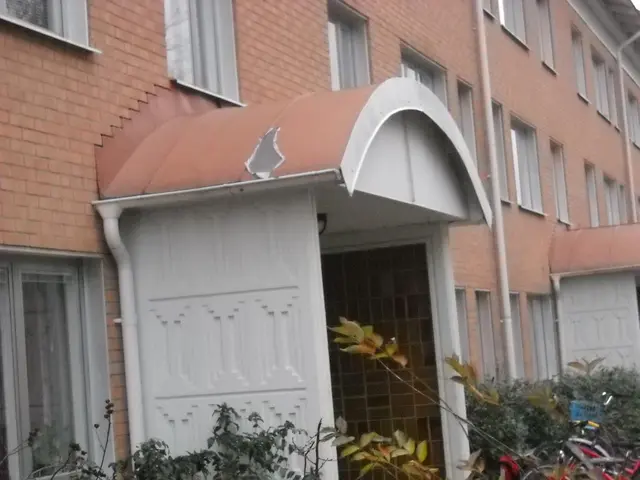In his address, Trump announces plans to escalate tariffs on imported steel, intending to increase them to a rate of 50% for foreign sources.
In a move to protect the domestic steel industry, President Trump announced plans to double the import tariff on steel to 50%, with an additional increase for aluminum imports to the same rate. The changes, set to take effect on Wednesday, could boost prices for a diverse range of goods that utilize steel, including housing, automobiles, and other manufactured items.
Trump made the announcement at U.S. Steel's Mon Valley Works-Irvin Plant in suburban Pittsburgh on Friday. Additionally, he discussed a forthcoming arrangement under which Japan's Nippon Steel would invest in U.S. Steel, although details regarding the deal's terms have yet to be finalized.
Initially, Trump vowed to block Nippon Steel's bid to purchase Pittsburgh-based U.S. Steel. However, he subsequently reversed course, announcing an agreement last week for "partial ownership" by Nippon. It remains uncertain whether the agreement, brokered by the Trump administration, has been concluded or how the ownership structure will be arranged.
Despite the agreement, Trump emphasized that the deal would ensure U.S. Steel remains an American company. The move is politically significant, as U.S. Steel serves as both a national symbol and a critical component of the country's supply chain, particularly impacting industries such as automotive manufacturing and national security.
Increasing the tariffs could further strengthen the domestic steel industry, as analysts have previously credited similar measures during Trump's first term for bolstering the sector. However, the measure could also push prices higher, with steel costs already having climbed 16% since Trump assumed office in mid-January. In the U.S., steel currently costs $984 a metric ton, significantly more than Europe ($690) or China ($392), according to the U.S. Commerce Department.
The United Steelworkers union expressed skepticism regarding the impact of the proposed merger between U.S. Steel and Nippon Steel on national security, workers, and community welfare in the Pittsburgh area. Union president David McCall voiced concern about the consequences of merging a domestic steelmaker with a foreign competitor.
Although there appears to be a division of opinion among steelworkers concerning Nippon Steel's acquisition bid, sentiment seems to have shifted as workers became more worried about potential Pittsburgh-area plant closures. Clifford Hammonds, a line feeder at the plant where Trump spoke, expressed optimism that the deal would help rebuild the aging facility and increase production.
Price, Levy, and Superville of the Associated Press contributed to this report.
- The government's decision to double the import tariff on steel and increase it for aluminum could potentially impact a wide array of businesses and industries, including housing, automobiles, and manufacturing.
- The discussion about a forthcoming arrangement between Japan's Nippon Steel and U.S. Steel, where Nippon Steel would invest in U.S. Steel, is part of the general news and has been a topic of debate in politics and policy-and-legislation.
- The move to increase steel tariffs follows President Trump's announcement at U.S. Steel's Mon Valley Works-Irvin Plant in Pennsylvania, where he talked about the potential deal with Nippon Steel.
- Despite initial apprehension, the United Steelworkers union has shown a change in opinion regarding Nippon Steel's acquisition bid, with concerns shifting towards potential plant closures in the Pittsburgh area.
- The domestic steel industry has seen growth in the past due to similar measures implemented during Trump's first term, but the potential increase in prices could lead to concerns in the health and finance sectors.
- Sports betting is largely unrelated to the current discussion, but it falls under the umbrella of general news and suits a diverse audience, much like the impact of this tariff increase on a variety of businesses.
- The law surrounding foreign investments in domestic steel companies and their potential impact on national security, workers, and community welfare is a complex issue and continues to be a matter of opinion and analysis.








